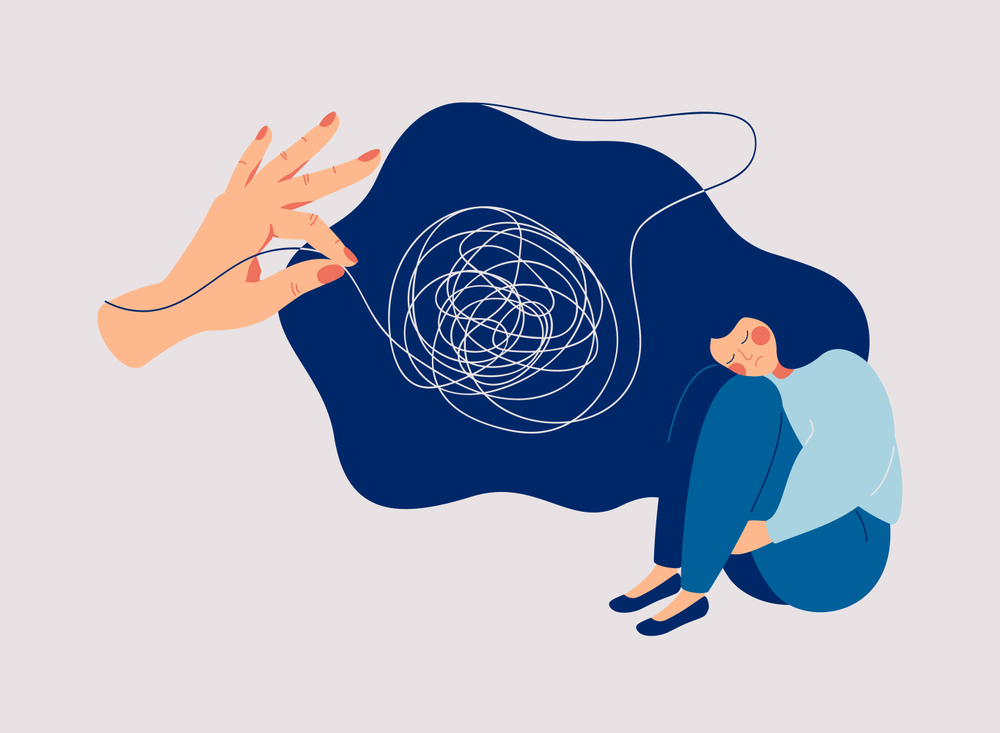
Anxiety
What Exactly it is?
Anxiety is the mind and body’s reaction to stressful, dangerous, or unfamiliar situations. It’s the sense of uneasiness, distress, or dread you feel before a significant event. A certain level of anxiety helps us stay alert and aware, but for those suffering from an anxiety disorder, it feels far from normal – it can be completely debilitating. Over the years, you might have struggled with feelings of intense worry or fear over what might happen. Whether it is the first day of college/office or talking to unknown people, the fearful thoughts might have troubled you and brought multiple sleepless nights.
It’s normal to feel anxious for major life-events but when this state becomes part of your personality and interferes with your daily functioning, it needs to be healed.
Experiencing anxiety is defined as a state of prolonged fear or arousal in response to a threat that is either ambiguous or unspecific. It is a reaction to the situation or context in which threats may take varied forms and predictions which further impacts your well-being. In such scenarios, anxiety needs to be conquered before it ruins your health and happiness.


Types of Anxiety Disorder
Different Types of Anxiety.
- Panic disorder : You feel terror that strikes at random. During a panic attack, you may also sweat, have chest pain, and Feel palpitations(unusually strong or irregular heartbeats). Sometimes you may feel like you’re choking or having a heart attack.
- Social anxiety disorder : Also called social phobia, this is when you feel overwhelming worry and self-consciousness about everyday social situations. You fixate about others judging you or on being embarrassed or ridiculed.
- Specific phobias: You feel intense fear of a specific object or situation, such as heights or flying. The fear goes beyond what’s appropriate and may cause you to avoid ordinary situations.
- Generalized anxiety disorder : You feel excessive, unrealistic worry and tension with little or no reason.
Symptoms Of Anxiety
How to identify about Anxiety?
- Feelings of intense worry
- Heart palpitations
- Heart palpitations
- Feelings of discomfort
- Dry mouth
- Lack of emotional stability
- Sweating
- Restlessness
- Panic attacks
- Lack of concentration
- Feelings of lost
- Trouble facing people
- Loss of appetite
- Lack of quality sleep
- Numbness or tingling in hands and feet
- Fear and apprehension
- Muscle tension
- Sweaty Palms
- Intrusive thoughts about self and others
- Feelings of hopelessness
- Low energy & Loss of voice
- Disturbed lifestyle
- Learn to act differently on your anxiety and your life by putting you in control of what you can control. Put simply, you can control and change how you respond to your anxiety-related feelings, thoughts, and worries:
- Stop trying to cope with worries, anxieties, and fears (if coping and other management strategies have not worked in a lasting way).
- This is an opportunity for you to become capable of facing the situations by redirecting your emotions in the right direction.
- We understand your situation and provide unconditional support and guidance to help you in your journey.
- Wide range of activities have been designed to help you understand the cause of the situation and acquire skills to conquer it.
- Learn to leave worries, anxieties, and fears alone and simply experience them as thoughts, sensations, feelings, or painful memories. You don’t have to act on your anxiety, and it doesn’t need to drive what you do. As much as you feel like running from intense anxiety, you can learn to act differently.
- Learn to watch anxious feelings and worrisome thoughts and not do what they tell you to do.

Deal with your anxiety attacks and anxiety disorders!
With jinal sanghavi’s counselling & therapy
